AI Presentation 1: Health and Longevity
This presentation forms the second part of the U3A 'Artificial Intelligence, 'Dreams, Fears, and Reality' online presentation on Wednesday 22nd May 2024.
This presentation is online on the Silver AI Project website at the following address:
www.silverAIproject.com/presentation1.html

One of the biggest dreams surrounding technological progress is the hope of longer lives combined with improved health. This presentation examines how we are advancing towards that goal.

S1. Shakespeare on Health and Aging
'The Seven Ages of Man'
William Shakespeare, "As You Like It"
1. Infancy: An infant dependent on a nurse, crying and vomiting.
2. Schoolboy: A reluctant young boy slowly and unwillingly going to school.
3. Lover: A passionate lover, deeply emotional and expressive in his feelings.
4. Soldier: A bold and reckless youth, seeking glory and quick to fight.
5. Justice: A mature, wise man with a good social standing, known for fairness.
6. Old age: Frail old, losing his firm, youthful physique and becoming more child-like.
7. Second Childhood: The final stage of life marked by a return to dependency.
This presentation asks: "Will it always be thus?"
We start by looking at what some Futurists have written, then turn to the actual developments that we see today. We conclude with practical advances relevant today to people with disabilities such as blindness.

S2. Ray Kurzweil and 'Longevity'
Ray Kurzweil. Futurist, wrote 'The Singularity is Near' in 2005.
was quite accurate in predicting the emergence of powerful AI now.
book still available, 500+ pages about the future.
next book soon 'The Singularity is Nearer'.
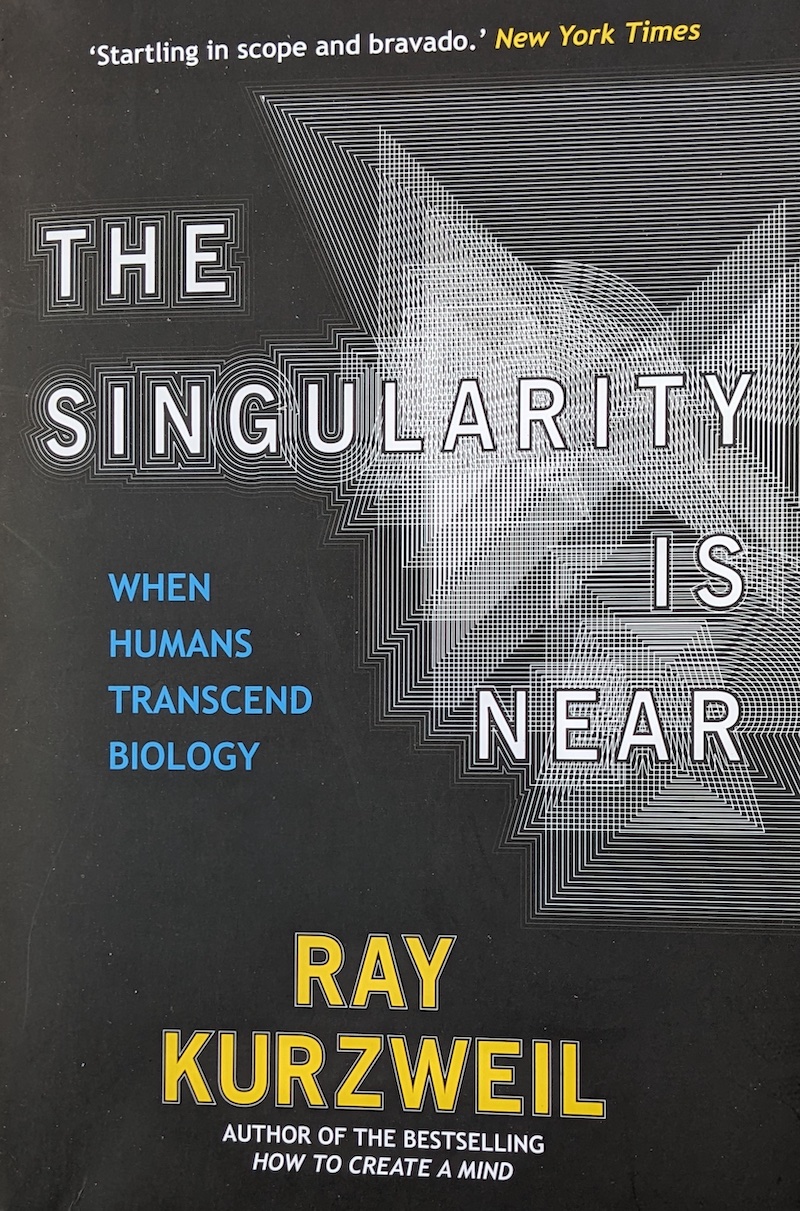
The Singularity. Discusses when 'machine intelligence' becomes greater than human intelligence.
'We will be able to live for as long as we want.'
'There will be no distinction between human and machine.'

S3. Max Tegmark and the 'Libertarian Utopia'
Max Tegmark. Physicist, futurist, wrote 'Life 3.0' in 2017.
Said the book is about 'the most important conversation of our time'
Discusses whether we should fear or look forward to superintelligent AI
Takes the 'Singularity' as obvious and near
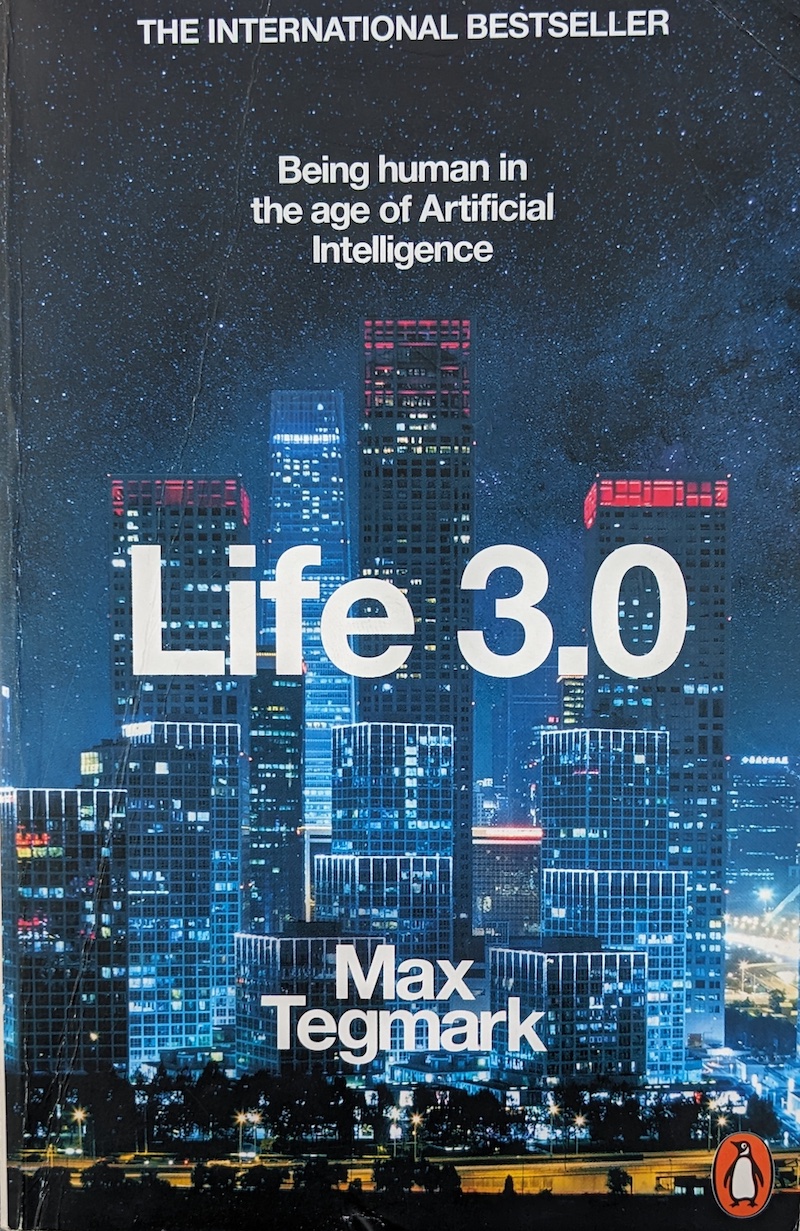
'AI has huge potential for improving healthcare'
Proposed a possible 'Libertarian Utopia' where humans peacefully coexist with technology
(and indeed some merge with it).
Also proposes many less good possible futures.

S4. Ethan Mollick on AI Conversation Tools
Ethan Mollick. Professor of Management at Wharton (USA), wrote 'Co-intelligence' in 2024.
Very easy to read on how to use tools like OpenAI's ChatGPT.
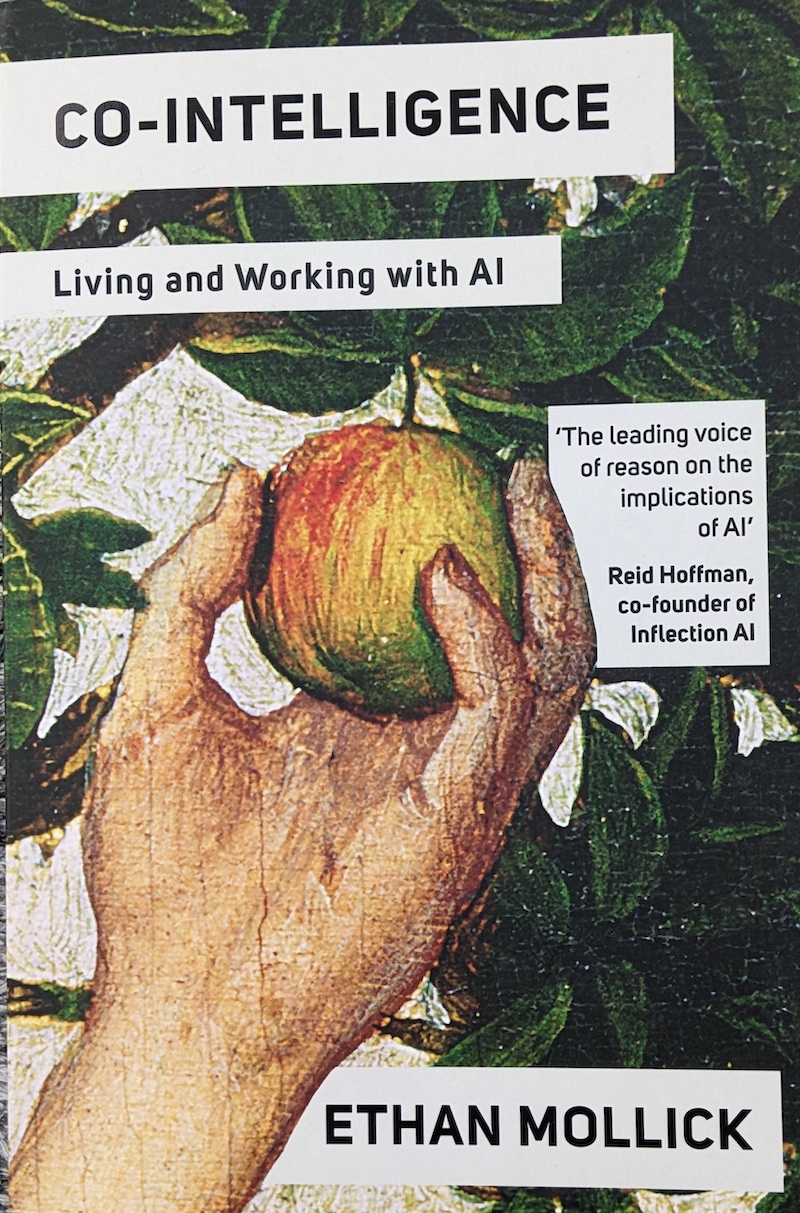
Quotes an American Medical Association paper about a particular trial as follows:
"The AI was almost 10 times as likely to be rated (by patients) as empathetic (than a human doctor)."
"The AI was 3.6 times as likely to be rated as providing good-quality information."

S5. Mustafa Suleyman on Longevity Technologies
Mustafa Suleyman. Co-founded Deepmind, Now CEO of Microsoft AI, wrote 'The Coming Wave' in 2024.
Writes about how we are not prepared for what is coming.
Discusses the different paths through the confusing situation ahead.
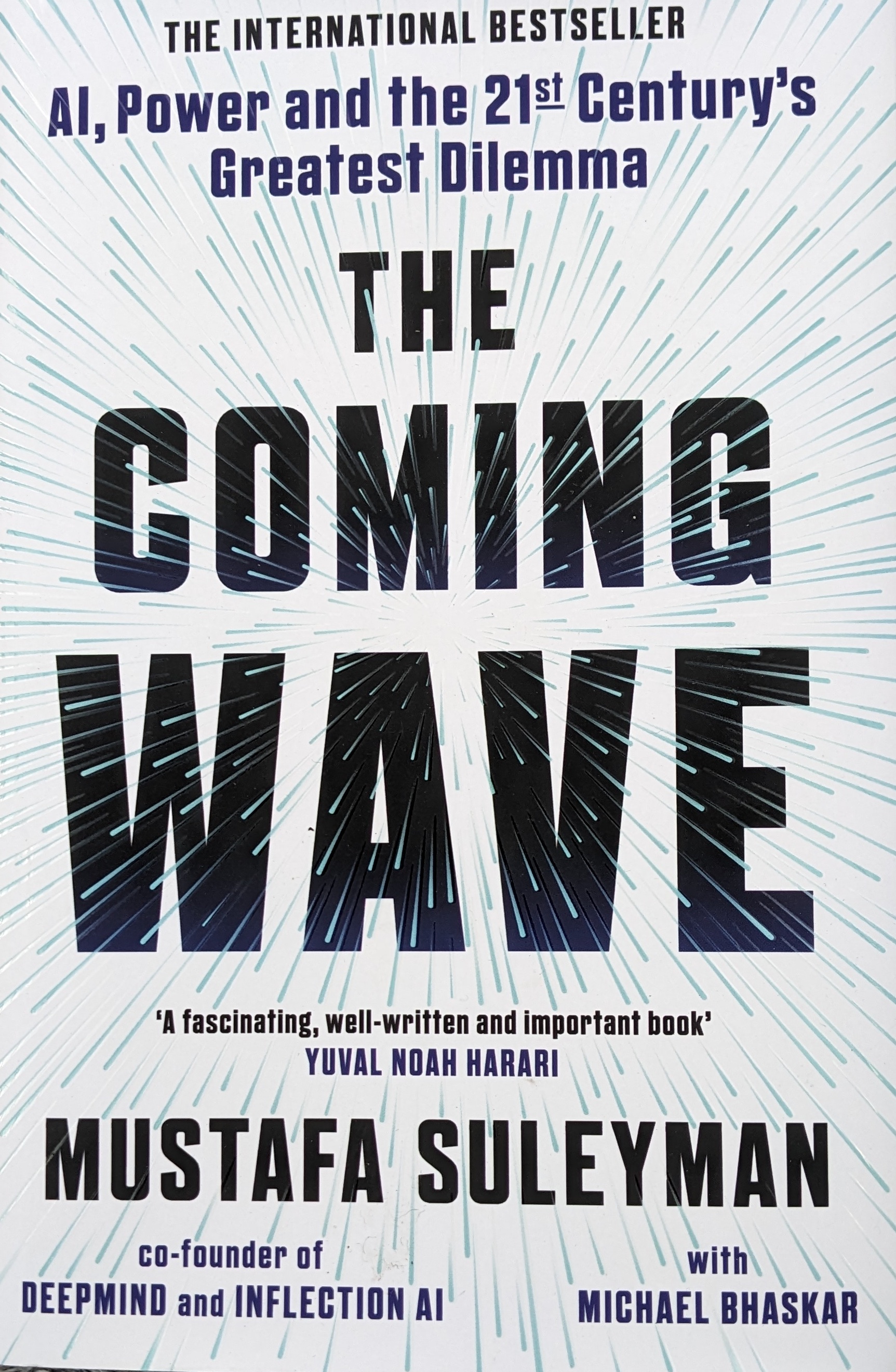
Looks at the many AI enhanced technologies to extend life
Say "serious physical self-modifications are going to happen" in areas like memory, muscle strength and more.
Talks about an Altos Labs scientist saying "We think we can turn back the clock" for human mortality.

S6. Summary of Predictions on Health and Longevity
These writers suggest ever-more powerful AI will lead to the effects below.

How many of these do you think are possible in the next 20 years? Is this 'science fantasy'?
[1] It will be possible to enhance physical and mental performance.
[2] The quality of healthcare possible will improve rapidly.
[3] This will tend to extend life.
[4] It may be possible to end human non-accidental death.
[5] Humans and machines may in time be able to merge.
We will next look at medical advances we can see today.

S7. Life Expectancy
This is an Office of National Statistics graph of male and female life expectancy since 1982.
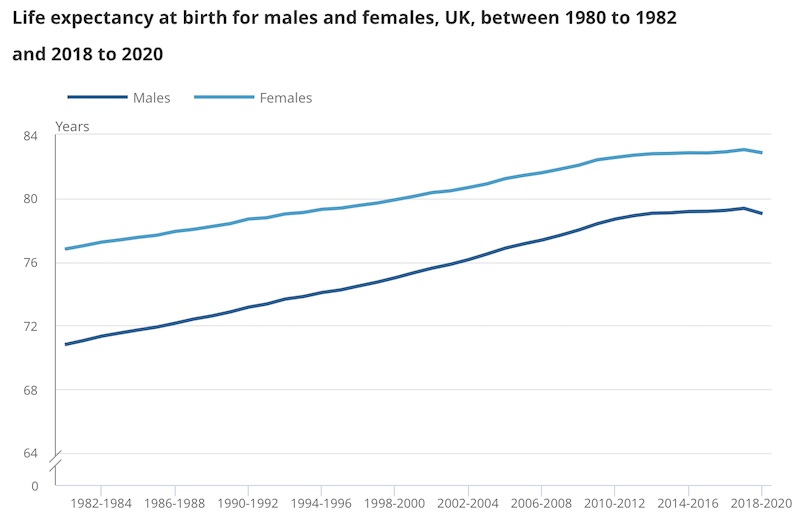
Clearly no sign yet of a strong uptick in how long we are expected to live. Nevertheless, the chart shows approximately an 8 year improvement over the past 40 years. Can we quickly 'bend the graph' upwards to our advantage?

S8. AlphaFold 3 - announced May 2024
In 2020, Google DeepMind's Alphafold 2 solved the 'protein-folding problem' and is said to have saved millions of PhD. Student years - it was apparently a typical PhD. project to tackle a single protein. Then in May 2024 the latest version was released which added the ability to 'generate the 3D structures of proteins, DNA, RNA, and smaller molecules, while also revealing how they fit together.'

It has been received as being a huge breakthrough in speeding up drug development. Demis Hassabis (May 2024) thinks the number one thing AI could do for humanity is to cure hundreds of diseases.

S9. Examples of AI used in medical diagnostics
Improving the quality of medical diagnostics and speeding them up would have a huge effect.

The examples below are a small sample of many. Imagine where this will be within two years!
[a] GPT-4 was near to the level of expert ophthalmologists in analyzing eye conditions.
[b] An echocardiography AI accurately detects patients with atrial fibrillation.
[c] A company just launched an AI-powered wellness kiosk for public use.
[d] Many new tools aim to improve note taking by doctors while reducing workload.
So much improved health seems very likely. We may soon even cure all of our major diseases. None of that stops us aging however. But what if aging is also 'cured'?

S10. What do we mean by Longevity?
The quotation below is thought provoking.
What do we mean by Longevity? 10 more years? 100 more? 1000?
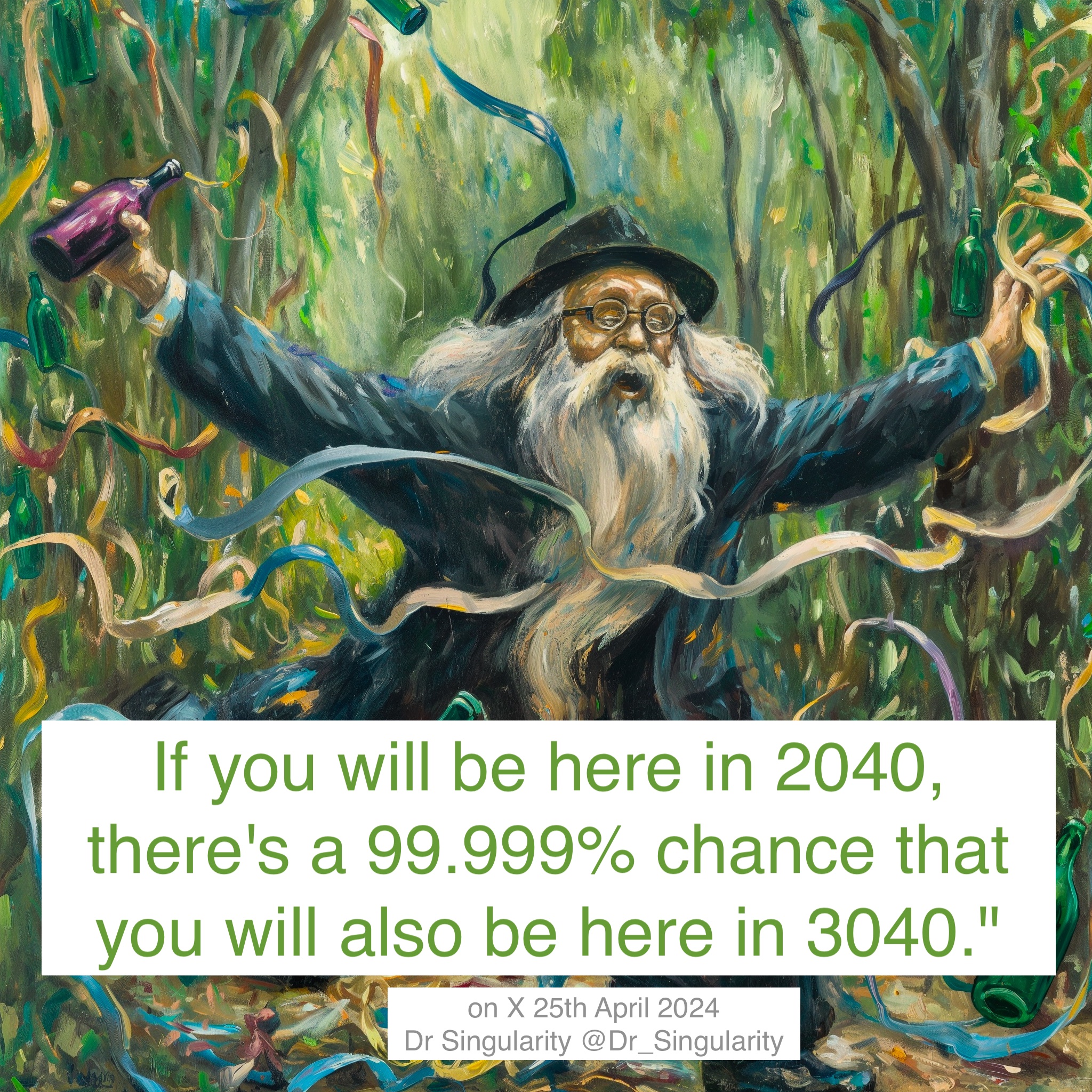
Ray Kurzweil. "For those in reasonably good shape and with reasonable means, I believe they will have access to Longevity Escape Velocity by the end of 2030." (Source: @PeterDiamandis, 3rd May 2024)

S11. Rational Fears around Longevity
Many people find the prospect of living long beyond 100 as frightening or unethical.
Few of us can imagine living many hundreds of years, or more.

Ethical issues:
The planet is not big enough. We will run out of space!
The planet is not rich enough. We will all starve.
Global warming cannot handle a population increase.
Practical issues:
What will people do for money?
What will I do all day long if AI has all of the jobs?
It is no fun living once your body deteriorates ...

S12. Dreams around Longevity
After the 'Singularity' many things may be possible, all going well as technological progress will be much quicker than we are used to.

Ethical issues:
The human race opens previously hostile environments like deserts, and has become multi-planetary.
Robotic factory farms, here and in space, provide abundant food and goods.
Global warming has been solved by a broad range of technological solutions.
Practical issues:
There is a Universal Basic Income, and anyway most things are very inexpensive.
The entertainment available is powerful and extensive.
Good healthcare options means everybody feels physically fit.

S13. Opportunities for using AI to change lives
Below we look at real AI technology that will improving disabled people's lives in the near future.

- for sight impaired people
- for those who are memory impaired and their carers
- for the physically disabled

S14. Example A: AI enhancement for the Sight-impaired - dotLumen
A dotLumen employee catching a beachball while unsighted.
They wear the dotLumen headset which uses Haptic (touch) methods to describe the area ahead.
This is a Romanian company that has won EU technology prizes that support it.
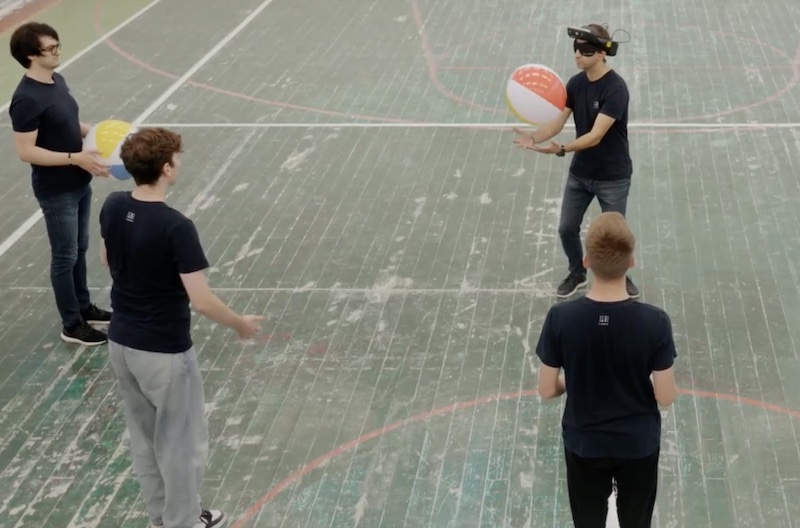
The dotLumen tagline is: "Glasses that empower the blind"
This AI enhanced product is coming soon. Affordable, practical. Real.

S15. Example B: AI enhancement for the Sight-impaired - OrCam
Image shows the OrCam device clipped to the side of a pair of glasses.
Device can be unclipped and handheld for reading etc.

- reads text from any book or screen
- recognises familiar faces for user
- can describe any scene ahead of reader etc

S16. Example C: AI enhancement for the Memory-impaired - Longitude prize
There is a 'Longitude Prize' for Dementia dementia.longitudeprize.org.
The idea is "to support people with dementia to remain independent for as long as possible."
Most solutions will have a strong AI component - there is a lot of data to monitor.
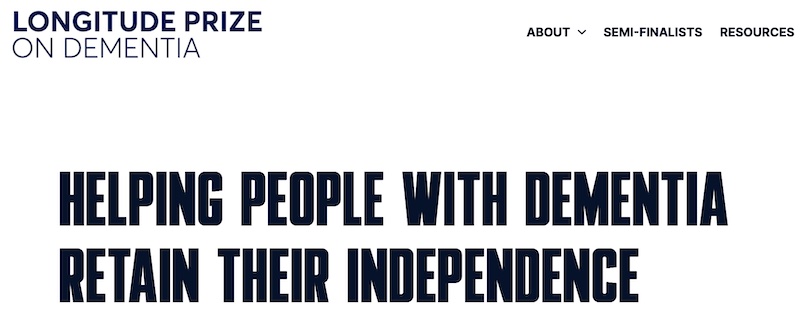
Prizewinners 2023 include:
Amicus. Interactive voice and text-assistive device to help with ‘broken speech’.
Kite. AI-based digital health system that can detect and respond to risky behaviour.
Supersense. Digital hub in the home of a person living with dementia to monitor and help.

S17. Example D: AI enhancement for the Physically-impaired - Neuralink
The Neuralink company is developing and testing an implantable sensor to aid people who have a wide range of problems including those without use of their arms etc.
The first human implantation of the brain-computer interface was in January 2024.
The patient was seen soon after in videos showing him playing online chess etc using only his mind.

"Our brain-computer interface is fully implantable, cosmetically invisible, and designed to let you control a computer or mobile device anywhere you go."
Aim 1: the restoration of digital autonomy to people living with quadriplegia.
The 'Patient Registry' is now assessing possible patients for future treatment.

S18. Optimistic conclusion
It is worth imagining a world where all of the following are true:
- everyone has access to a great standard of healthcare that keeps them alive and well.
- everyday goods and food are very inexpensive and easy to obtain.
- everyone has a personal AI that is more clever than any normal human
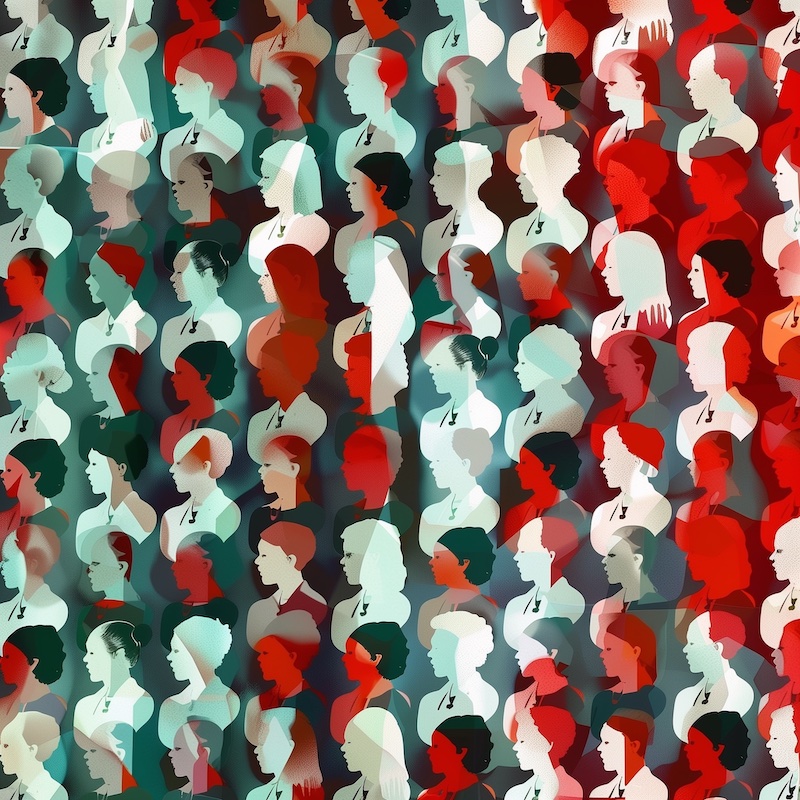
[a] There will still be some people far richer than others.
[b] There will still be some things only the rich can buy (housing in the 'best' areas).
[c] Most desired goods are available equally to everyone at a reasonable price.
The 'iPhone effect' where the richest person gets much the same phone as the simplest citizen

This presentation is online on the Silver AI Project website at the following address:
www.silverAIproject.com/presentation1.html
You can follow the Silver AI Project on X: @silverAIproject